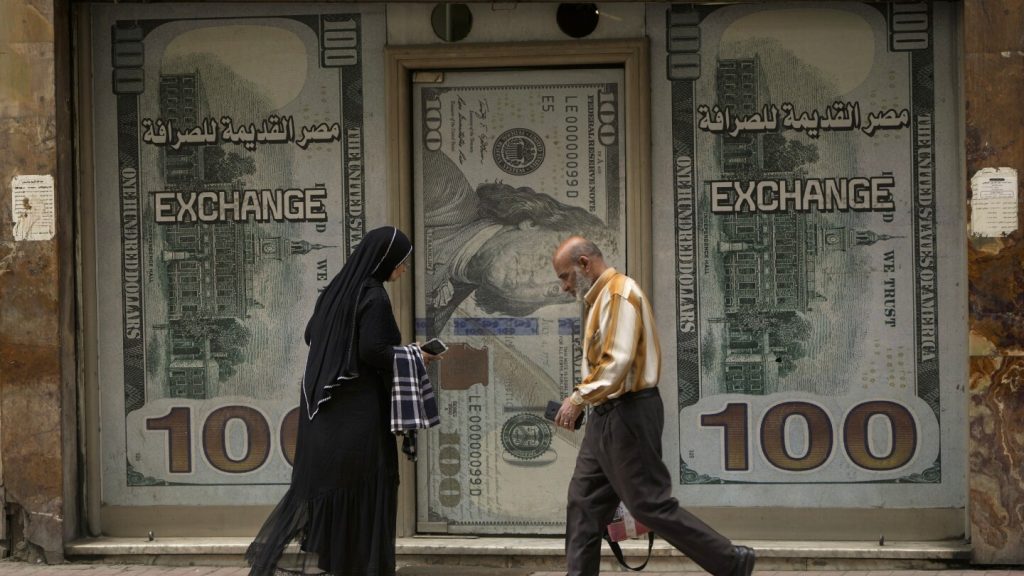The International Monetary Fund (IMF) has confirmed a deal with Egypt to increase its bailout loan from $3 billion to $8 billion, in an effort to stabilize the country’s struggling economy. The deal includes an immediate disbursement of about $820 million and follows an agreement between Egypt and the IMF on a reform plan that focuses on floating the local currency, reducing public investment, and boosting the private sector. Egypt has already taken steps such as floating the pound and increasing interest rates in order to combat inflation and attract foreign investment.
The Egyptian economy has been hit hard by a combination of factors, including years of government austerity, the coronavirus pandemic, the fallout from Russia’s invasion of Ukraine, and the recent conflict between Israel and Hamas in Gaza. The attacks by Houthi rebels on shipping routes in the Red Sea have also affected Suez Canal revenues, a major source of foreign currency for Egypt. These external shocks, along with delayed reforms, have led to a slowdown in economic growth, with the IMF projecting further declines before a gradual recovery in the coming years.
Despite the challenges facing the Egyptian economy, the IMF believes that the inflation rate, which was 36% in February, is expected to ease over the medium term. However, the currency devaluation and interest rate hikes have added to the financial burden of Egyptians, many of whom are already living in poverty. Nearly 30% of the population in Egypt is considered to be living below the poverty line, according to official figures. Finance Minister Mohamed Maait welcomed the confirmation of the IMF deal, stating that it reflects the importance of the government’s corrective measures.
In addition to the IMF loan, Egypt has also signed a deal with the European Union for a 7.4 billion-euro ($8 billion) aid package over three years. The EU plans to fast-track 1 billion euros of the package to provide immediate assistance to Egypt’s struggling economy. This urgent funding procedure bypasses parliamentary oversight and other safeguards, allowing for a quicker injection of funds. European Commission President Ursula von der Leyen emphasized the importance of supporting Egypt during this critical time and expressed the EU’s commitment to helping the Arab country recover from its economic challenges.


